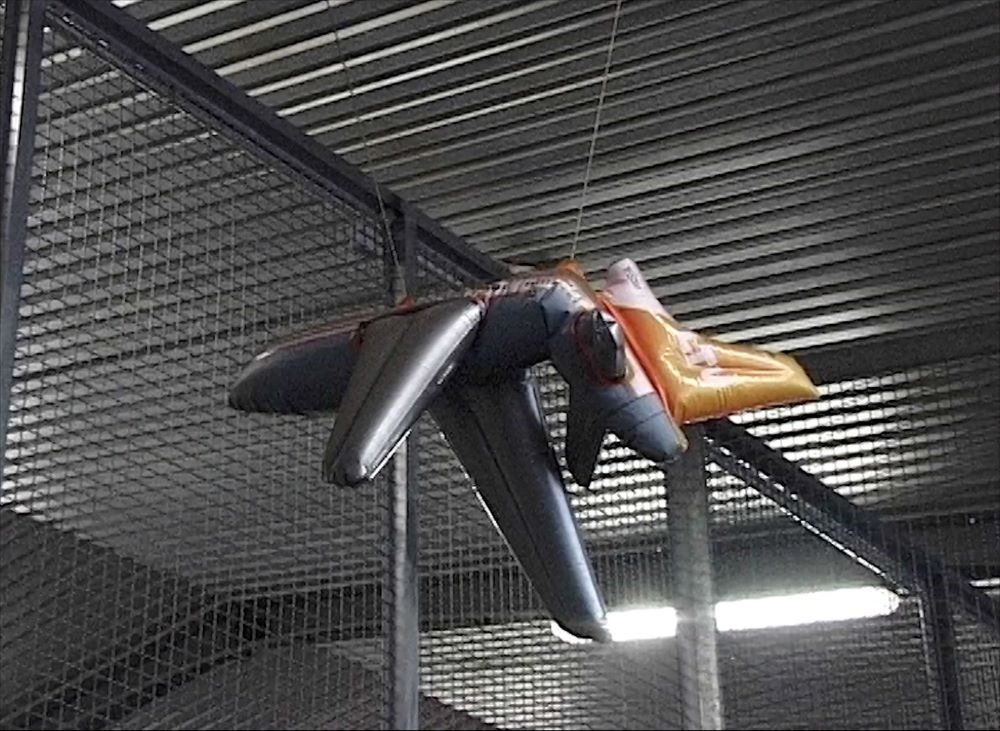Film Text: First In First Out
Film Text: First In First Out

First In First Out
By Ela Bittencourt
The past may be what we make of it, but as Zacharias Zitouni so pointedly shows in First In First Out, it’s not always apparent how stories about the past are being constructed, or to what end. Even when—or perhaps particularly when—the stories are about our parents.
In the 1990s, Zitouni’s Algerian-born father, Mustapha, and German-born mother, Christiane, were a young couple in love. As Christiane tells it in the film’s voiceover, life was normal, except for Mustapha’s reluctance to go out at night or loiter in Hamburg’s central areas. Then one day in 1994, Mustapha went out to the supermarket to buy sardines, and didn’t return. He had been arrested and imprisoned for apparently not having his immigration papers in order. Christiane visited him in jail and at a detention center; deportation and a lengthy legal ordeal followed. Finally, the couple married in Tunis, allowing Mustapha to return to Germany.
Zitouni’s film is informed by the fact that his parents’ story is a romantic one. At the same time, the particulars of the trauma remain vivid in Christiane’s memory: Mustapha’s stay in solitary confinement, his gaunt appearance, the high walls of the detention site that she haunted on one snow-strewn Christmas Eve. Zitouni pairs the narrative lyricism of such detail, its angst attenuated by time, with the mundane recording of his father’s professional routine at the Hamburg Airport, where he is in charge of preparing inflight meals. The aesthetic approach in these sequences, particularly the way Zitouni’s handheld camera strives to be unobtrusive—the first shot of Mustapha is inside his car, with his back to us—suggests a certain difficulty for Mustapha in approaching the subject. And perhaps also there is an impulse to keep some things out of mind. “I’ve forgotten it all,” Mustapha says, on his drive to work. Zitouni asks, “Forgotten, as in on purpose, or…?”
This question mark hangs over the film, leaving open a structural ellipsis. When, in another part of the film, Mustapha mentions that he helped out a police officer at the airport by giving him a steep discount on sandwiches for a retirement party, the moment’s framing—particularly the father’s silence leading up to it—makes it feel fraught with meaning. Shortly afterward, Zitouni questions his father about preparing yet another meal—this time destined for the Exilanten (refugees being deported). The camera zooms in on official paperwork with dates and flight numbers, where we can read the following text: “I kindly ask you to cater the following deportation flight.” It is in this moment—in the tension between Mustapha’s near-clinical attention to the procedures of his job, and the camera’s intense, almost shocked focus on the minutiae of this normality—that First In First Out finally reveals itself as quasi-psychoanalytic.
To Mustapha, a job is a job, to be carried out attentively, regardless of the situation. But to Zitouni, there’s a deep incongruence, a strangeness, in his father’s preparing meals for the police and for the deportees, Mustapha having been a deportee himself. In this moment it’s as if Zitouni sees signs of his father’s emotional dissociation, and repression, recalling the “forgetting” that Mustapha spoke of earlier. Whereas Mustapha dispassionately tells his son, “The police cannot help it. They didn’t make the laws themselves,” Zitouni seems to wish for some reckoning with the larger system that mistreats people who are just like his father. In this complex layering of colliding narratives—between Mustapha’s insistence on his own resilience, and Zitouni’s fixation on his father’s forgetting—the constant presence of barbed-wire fences in First In First Out comes across as not just airport architecture but an existential armature of Mustapha’s memory.
